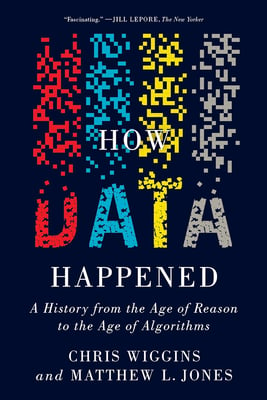KANE TOMLIN
Chief Technology Officer at Mississippi Department of Health
Can you please provide a little introduction about yourself
What path have you taken to your current position?
It's a crazy story actually, and proof that your life can be really interesting if you can't decide what you want to be when you grow up. I started my career in IT in the private for-profit sector as a Business Application Development Project Manager during the Dot Com years.
Then I had an early mid-life crisis after 9/11 and joined the US Army as a Deep Sea Diver (go underwater and blow stuff up) deployed around the world doing various missions for about 15 years.
After medical problems cut my service short, I left that role and went into law enforcement as the Special Programs Director for the FDLE. After working for the state of Florida for a few years, I was approached to do some strategy execution consulting, and the rest as they say is history.
Has it always been your vision to reach the position you’re at? Was your current role part of your vision to become a tech leader?
Maybe. I'm not sure I ever daydreamed about being the head "IT Nerd" for an agency, but I've always been a problem solver by nature and temperament. Additionally, I'm a big believer in the idea that if one is highly opinionated, one should be highly involved.
I try to avoid being the person shouting criticisms from the back of the room, so when people ask me to help get a job done I tend to jump in with both feet. I tell my folks often that we are in the problem-solving business, not the technical business. We just use technology as a means to our ends.
Have you had a role model or mentor that has helped you on your journey? (If you feel comfortable, please share their name and how they helped you)
I've had two especially wonderful leaders in the Dive Field that I think have shaped a lot of my leadership style; keep in mind that in my experience all the leaders I've worked for in the Dive Field have been great.
My first commander Captain Shawn English taught me the power of servant leadership combined with an unbeatable attitude, all of us would have followed him anywhere. His catchphrase was "Choose the Harder Right over the Easier Wrong", and he lived it 1000%. He volunteered for a special program in Iraq during my first combat deployment and was Killed in Action on December 3rd, 2006, choosing the Hard Right all the way to the end. You don't serve a leader like that without inculcating his example.
My last boss when I was an instructor at Dive School was Commander (now Captain retired) Hung Cao, a refugee from the Vietnam War who embraced the American dream, he's a special kind of leader who approached problems with humility, intellectual curiosity, and taught me the power of referent leadership as opposed to coercive forms of management.
How do you see the role of the technology leader evolving over the next 5 years?
So a million years ago, change management likely meant something close to "we need to deconflict this push to production so we don't create an unscheduled outage". Full disclosure, as a developer myself I broke those rules as often as I followed them. That's still true at the tactical level today, but now change could just as easily be "we need to embrace a paradigm-shattering fundamental shift in technology to stay relevant to our customers", which in my case the citizens of Mississippi.
That is not a tactical level change and these strategic changes are no longer coming in 3-5 year cycles like they used to. We had to deal with this shift in the 90s-00s in the private sector which led to the Agile Manifesto gaining in popularity since it came out in 2001. Now the government is in the same boat, but by definition, the political and budgetary processes occur on a slower timeline.
Technology is rarely the limiting factor anymore, organizational change management (OCM) is. There's going to be a massive period of restructuring within state and local government to align procurement, policy, and execution efforts to the ever-increasing velocity of change required in 2024 and beyond. Change throughput/capacity is going to be a critical KPI for these organizations as well because absorbing change at these rates can cause serious issues and can lead to project and program failure.
What skills do you think leaders of the future will need in order to thrive?
I think leaders today need to focus on referent power; we need to stay knowledgeable about IT's "art of possible" at a minimum. While I don't get to code programs anymore, I try to stay on the keyboard as much as possible. I used to joke that AI and Quantum would be my bridge too far, and that was when I would leave IT. Well, those things are here already, and ignoring them is not an option.
Those technical skills are not only perishable, they are ever-evolving. I also think agility is a critical skill, but ironically enough we keep trying to codify agility into some standard like scrum within the government sector. It's our nature I suppose to standardize processes, but agility is a concept, not a process. Leaders who can adjust processes as needed to achieve agility in action will be successful, while those who become beholden to the approved "agile" process will not.
Is there anything in particular that you would still like to achieve in your career or what is the next step on your journey?
For now, I'm focusing on setting up my agency for long-term success, investing in our people to upskill them, investing in IT internal systems to facilitate more effective workflows, aligning our efforts to the business objectives, and ultimately I hope to develop a reputation that MSDH's IT organization is truly in the problem-solving business. What better showcase for the power of IT on organizational efficiency than to ensure that our area is the most efficient and effective in the agency?
I have no idea what my next step is; what does a "web developer/underwater explosives expert/Master Diver/Project Manager/cybersecurity professor/CTO" resume prepare one for? But I do feel confident that there will be organizations with strategy execution challenges out there for the rest of my life (and all the reader's lives as well), so I'll probably be as busy as I would like to be.
What advice would you give to aspiring technology leaders who are just starting their careers?
Learn from your leaders. Some will teach you what you should not do, and others will serve as mentors, but you will learn from all of them. I would also encourage you to aspire for systematic mastery, don't be a developer only if you can be a developer who also understands business analysis, project management, network fundamentals, and security.
I would also encourage everyone to remain intellectually curious, and read everything you can. Set aside time in your day to research new developments in your area of expertise or else you will atrophe.
"Learn from your leaders."
How do you measure and communicate the value and impact of technology initiatives to other business leaders and stakeholders?
The most effective way to communicate technology initiatives to the business side of the house is always going to be in terms they are comfortable with, aka business value. Risk avoidance is the primary value of cybersecurity initiatives for example, but how does one quantify that investments in that area are working? It's proving a negative usually which isn't ideal. Qualitative metrics are better than nothing, but quantitative ones are what executive leadership is usually looking for.
Try to deconstruct the ask and the value in light of ROI's or strategic objectives instead. "We need an XYZ investment in InfoSec because our Vision statement states that trust is our paramount goal, and a breach would lower organizational trust" for example. It might seem silly, but I'm routinely surprised at how few IT strategic goals have a direct alignment to the business on paper. We instinctually know they do because we're in IT; but you don't want to assume the business side of the house knows that.

A big thank you to Kane Tomlin from Mississippi Department of Health for sharing his journey to date.
If you would like to gain more perspective from Tech Leaders and CIOs you can read some of our other interviews here.
January 6, 2025


